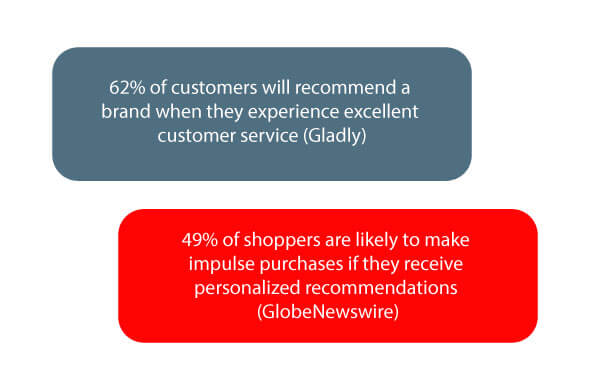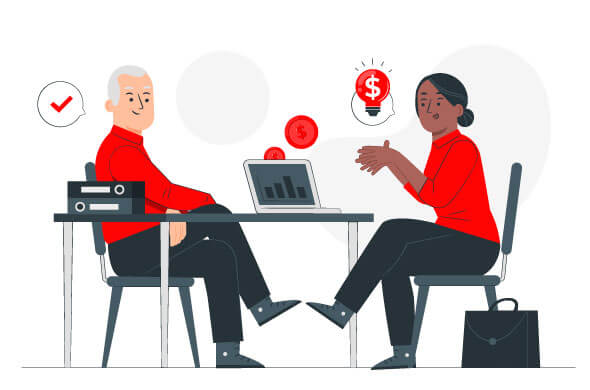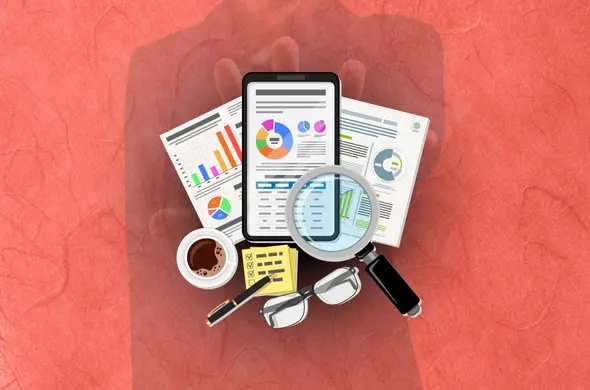Updated
June 14, 2023
Written by
Alyssa Maano

From the moment you enter an establishment until long after you finish the transaction, there is some kind of customer service involved along the way. The same thing applies when you enter and transact on a website.
But what is customer service exactly?
Customer service can be boiled down to the assistance offered to clients before and after a transaction. Basically, it aims to provide the best customer experience.
It used to be a limited term and almost synonymous with customer support. But with changing demands and customer behavior, it is a much more systematic and intricate system nowadays.
Why? Let’s get into the details of why customer service is important in the first place.

Customer service has a tremendous impact on a business’ reputation. With the social media sphere as it is in the present, one negative post can lose you millions of dollars. In the worst-case scenario, permanently tank your value.
On the other hand, having loyal customers means more chances of higher customer acquisition. According to a survey by Gladly, a customer service platform, 62% of customers will recommend a brand to a friend when they experience excellent customer service skills. If that expectation is met, the friends will recommend it to other friends as well.
As for the sales side, people are willing to spend more if it means they get top-notch customer service. GlobeNewswire even reports that 49% of shoppers are likely to make impulse purchases if they receive personalized recommendations.
Customers are the lifeblood of a business. It should be evident that excellent service is a necessity for them to not only try a company’s products and services but come back for future transactions as well.
What makes good customer service?
A professional customer service representative must possess a number of skills in order to make sales and provide excellent customer experience as well.
What are the customer service skills needed for the job? Well, we’ve taken the liberty of compiling a list of skills for customer service you need to have under the following groups: Communication, Interpersonal, Technical, Sales, and Leadership Skills.

One of the key skills for customer service is being adept in communication. Customer service is where a lot of interaction with the clients happens. It’s important for customer service representatives to hone their communication skills to connect with clients and build positive relationships.
Number one on the customer service skill list is active listening. As a customer representative, the first thing you should know is to learn how to listen. When you actively and fully listen to a customer’s concerns, you get a view of the whole picture and can determine the ways to address these concerns and provide an immediate solution.
Take your time and pay attention. To show that you’re listening, rephrase or repeat the gist of the customer’s query and ask for clarifications. Show them that you are truly listening through verbal and non-verbal cues. The more you do it, the more you get better at it.
You need to pay attention to your tone and choice of words in customer service. Think about what is or what is not appropriate to say to the customer type. Yes, customer type.
Communication doesn’t have to be all serious and monotone. It can be creative and align with the branding. However, you need to be able to explain your answers in a way that can be easily understood.
Your answers should be simple and straight to the point. What use are answers to queries if the customers have question marks floating around their heads?
It’s not enough to listen and comprehend, you should know how to empathize with the customer. It is one of the essential qualities of good customer service.
They are fellow human beings, not just a number. Place yourself in their position and feel what it would be like. Surely, you have been a customer as well outside of work.
Understand their situation and where the concerns are truly coming from. Identify what they want to hear and how you can steer the solution closest to it.
It is inevitable that you will encounter customers that frustrate you. Angry customers are a staple after all in the customer service department, especially those who are labeled as ‘Karens’. Losing your patience during these situations gets nothing done. Not only are there no solutions, but you lose the customer as well as any chance of a positive experience.
Stay calm and keep a clear head. Let the client finish and look for a solution at the same time. The longer the situation lasts, the more stressful it may become.
To help with your patience, try coming up with different scenarios and then think about how you would deal with them. So when the time comes that you encounter these scenarios, you already have a solution in mind.
Conflicts happen not just between representatives and customers, but even between teammates. Conflict resolution refers to the ability to navigate and de-escalate these situations.
When there is a conflict happening, act upon it immediately. The longer you let it be, the more it can get worse and involve more people. If possible, bring them to a better location.
Listen to all the sides and arguments and look at it from their perspective and then an outsider’s perspective. Be calm and reasonable with your words and actions to maintain a sense of order. Use your problem-solving skills in order to make a decision and let the parties come into an agreement.
Even if the initial experience is negative for the client, use this chance to turn it around and provide excellent customer support. The resolution may involve a bit of lost profit, especially when you offer discounts, freebies, or vouchers. However, it will be worth it in the long run, especially if the customer is satisfied and returns for a future transaction.
Do you know how to get along with a myriad of personalities? The opportunities for miscommunications and other errors are endless in the realm of customer service. To avoid these pitfalls, you need the following interpersonal skills:
Be positive not just in words but also in disposition. How will the customer approach you when you don't look welcoming in the first place? Even if the customer isn’t exactly looking all sunshine, just tone it down a notch to keep the situation calm.
You should be able to get along with your fellow teammates and develop a system for solving problems. Know their positions, their department, and their skills then categorize the problems you have previously encountered to the best person who can solve them.
Each one has something to contribute–experience, skill, ideas, and so much more. When joined forces, it leads to a higher percent of productivity.
With an efficient system in place, queries will be solved much faster, ensuring better customer experience. You also learn from each other during the whole process, leading to a fruitful collaboration and mutual development.
A characteristic of great customer service is being able to go with the flow. In case of unexpected occurrences, a customer service representative should be able to quickly think on their feet. In the customer service industry, every day is a different day after all.
Some examples of these unexpected occurrences come in the form of sudden surges in customers, being assigned to a new setting, or a new workplace process to be followed.
Think like a survivalist in the jungle where you never know what you’re going to encounter and what’s going to happen next. Not to say that you should always be wound up, just be ready for whatever may happen.
Dress for your job. That goes for your mannerism as well. Your customer service persona should be friendly, but able to maintain that sense of professionalism. The customer, after all, is still a customer, and part of your job is getting said customer to make a successful transaction.
That sense of professionalism should also be maintained when confronting angry customers. It wouldn’t do to lose one’s cool and impede your decision-making skill. The business’ reputation and customer satisfaction are on the line.

Customer service representatives should come equipped with technical skills. These technical skills do not mean knowing how to use technology (which is also a valuable trait), but having the practical knowledge and skills required for the job.
Product knowledge is simply having awareness of the ins and outs of the business. The representative should know about the products, services, policies, and processes in order to answer customer inquiries. It can range from knowing product prices, troubleshooting said products, knowing which way to go, or identifying the right person to handle a query.
This is a very good skill for customer service as it also enhances your ability to upsell or cross-sell. It enables you to determine related products and services that may interest the customer.
You can even add a bit of creativity here in the way you present a product or service. You can base your approach on your branding or a business’ special event. Make a lasting impression to your customers while delivering the needed information.
However, be honest in this department. It will not do you good to promise something and then fail to deliver. No, customers value your honesty much more than grand promises.
Problem-solving is a staple in the customer service industry. In fact, it’s a big part of the job. You need a combination of product knowledge and communication skills in order to address the customer’s problem.
The devil is in the details, as they say. But in this case, it’s the sales opportunity in the details.
Pay attention to customer behaviors and glean from that data what you could do next. You can proactively directly ask them for the specific things they are looking for or direct them to related products.
Another thing you should keep an eye out for is mistakes, no matter how small. Double-check your transactions and make sure that everything is in the correct order. The littlest mistake can cost you a lot in your bottom line and reputation.
If you’re having trouble remembering the details, you can help yourself by creating a list of things to remember. The more times you go through your list, the more it becomes a routine.
The key aspects of multi-tasking are prioritization and organizational skills. If it helps, jot down the tasks you have to do and list them according to priority. Now, break those tasks down into smaller steps that can be easily accomplished.
One way how to improve this customer service skill is, wait for it…playing games. There are a lot of challenging games, free at that, that can help train your focusing skills. Just don’t play while you’re working, okay?
Time is of the essence. You can’t use too much of your time for one query. There are other customers waiting, and their fuses may not exactly be long. Letting a customer wait too long can cost you sales, probably forever from that person. Attending to a customer fast lets them know that they are important and are a priority.
One simple way to hone this skill is also by playing time-focused games. It helps you learn how to efficiently juggle time-sensitive tasks and think under pressure, all while having fun.
However, your employees can only do so much. You can outsource customer support or employ the use of a chatbot in your livechat to be able to attend to more clients at the same time. Program it to answer frequently asked questions (FAQ) and the like.

Your goal in customer service is to lead customers into making and finishing a transaction. In order to do that, you need some key sales skills. These skills are similar to technical skills but lean more toward making sales.
Upselling is the sales practice of recommending a better quality version of the same product on hand. It’s a tactic that allows businesses to market higher-end products. For instance, presenting a phone that is slightly more expensive, but with better specs.
You should be able to convince the customer that they will get a better deal with the product. Help them visualize what they will gain and how much they will save in the long run.
Of course, this tactic would be more effective coupled with honesty because you want the customer to be satisfied with their purchase. Falling short on these promises would only do the business harm.
Cross-selling meanwhile is the sales tactic of recommending similar or related products that the customer can purchase alongside what they have on hand. These complementary products can be separated or presented as a discounted set. For example, recommending cotton balls and a toner alongside a purchase of facial wash.
On the business side, it increases profit by providing more opportunities to create sales. While on the customer side, you are opening up new options that they may not have yet known or explored.
On a practical note, cross-selling also helps in reminding customers of items that they might have forgotten to purchase. Just something to keep in mind.
As cliche as it might sound, you need some charisma and persuasive skills. You need to be convincing in promoting the product or service to spark the customer’s interest. Also, the customer should feel good about their decision and their purchase instead of feeling like they got scammed.
Service for the customer follows even after the transaction, meaning different means of follow-up communication. You can employ a variety of tactics through all the available communication channels.
One tactic is presenting customer satisfaction surveys to acquire feedback directly from the customers. Another is to send emails thanking them and containing either item related to their transactions or special promos.
You can improve your business’ follow-up tactics through customer service outsourcing. That way, your representatives won’t be stretched too thin while delivering quality service.
Personalization is the key to a customer’s heart. They like being catered to and they appreciate it even more if you remember their preferences. It leaves a good impression and makes the experience memorable for the customer, forming a foundation for a stronger rapport.

No matter your position, you should possess some leadership skills in the workplace. These skills are not just applied when in a position of power but can be applied in several situations as well.
Customer service is a fast-paced occupation. You can’t leave the customer hanging while thinking about what to do next. It will cause doubt as to the quality of service and your knowledge as a customer service representative.
Decision-making skills involve gathering all the relevant data and being able to process said data to glean insights. From those insights then comes the decision to be taken. This is a critical skill when it comes to problem-solving.
Quick decision-making also helps establish trust between you and a customer or teammate. It means that you know what you’re doing and you know what to do during specific situations.
You don’t have all the answers, and that’s okay. It can be a flustering situation when you don’t know the answer, but don’t let it affect you. There are other people who can help you–your workmates.
Being able to multitask does not mean that you have to take on everything. Play to your strengths and learn to rely on others’ strengths as well. Learn more about your team and their skills. Know who should be assigned to what and systematize your processes.
You have your job and they have theirs. Delegation lets your coworkers develop as well, increasing overall efficiency as everyone becomes more independent and more skilled.
The quality of customer service depends on the quality of the workers. As a senior coworker, you need to be able to impart the necessary knowledge and skills to new employees.
Do not spoon-feed, but do not be too distant either.
As a customer representative, you have a responsibility to the company and to customers.
If you are in charge of an issue, you should see to it until its resolution. Make sure that a solution is being actively worked on and regularly update the customer on the progress. And even if you delegated the task to the appropriate department, it’s up to you to see to the problem until the end.
Your skills should not remain static. As time passes, the tactics and technology downgrade and eventually become ineffective.
Keep your customer representatives engaged by giving them chances to upskill and learn even more. Schedule occasional training, or perhaps hire coaches that will keep their skills sharp and up to date with the latest industry trends.
With the care put towards their improvement, the employees will be much more satisfied with their job and their chances for growth. With satisfied and engaged employees comes better work quality, resulting in a better customer experience.
Being a customer service representative is not an easy job. But then again, you can say that about almost all occupations.
Customer service involves one-to-one interaction with customers, thus needing communication skills and technical skills in order to effectively impart what is needed by the customer. Interpersonal skills and sales skills help build a relationship with the customer to keep them contented and happy to be patrons of the brand. And lastly, leadership skills are for effectively maneuvering the social aspect and responsibilities of the job.
You should not only possess a combination of these skills but should also be willing to undergo further learning processes to upgrade your knowledge and abilities. There will always be something new to learn. These learning opportunities can be provided by the company, a third-party organizer, or even simple tasks in your everyday life. Ask for feedback and don't let mistakes make you falter on your step.
Upskilling not only makes you a better representative, but it also gives you an advantage in the job market and gives you a chance for growth.
As previously said, quality workers make quality service. But it’s easier said than done. Not all companies have enough resources to onboard skilled customer service employees or even spare manpower for better customer service.
The alternative option then is to outsource customer services and partner with another company that can provide customer support outsourcing services. New Media Services customer support services is just right around the corner.
Provide nonstop customer support when you work with us thanks to the partnership of artificial intelligence and our excellent customer support representatives. Accommodate more customers no matter the location, the timezone, or even the language with our multilingual call center services.
Put your trust in our world-class services. Contact us!

From the moment you enter an establishment until long after you finish the transaction, there is some kind of customer service involved along the way. The same thing applies when you enter and transact on a website.
But what is customer service exactly?
Customer service can be boiled down to the assistance offered to clients before and after a transaction. Basically, it aims to provide the best customer experience.
It used to be a limited term and almost synonymous with customer support. But with changing demands and customer behavior, it is a much more systematic and intricate system nowadays.
Why? Let’s get into the details of why customer service is important in the first place.

Customer service has a tremendous impact on a business’ reputation. With the social media sphere as it is in the present, one negative post can lose you millions of dollars. In the worst-case scenario, permanently tank your value.
On the other hand, having loyal customers means more chances of higher customer acquisition. According to a survey by Gladly, a customer service platform, 62% of customers will recommend a brand to a friend when they experience excellent customer service skills. If that expectation is met, the friends will recommend it to other friends as well.
As for the sales side, people are willing to spend more if it means they get top-notch customer service. GlobeNewswire even reports that 49% of shoppers are likely to make impulse purchases if they receive personalized recommendations.
Customers are the lifeblood of a business. It should be evident that excellent service is a necessity for them to not only try a company’s products and services but come back for future transactions as well.
What makes good customer service?
A professional customer service representative must possess a number of skills in order to make sales and provide excellent customer experience as well.
What are the customer service skills needed for the job? Well, we’ve taken the liberty of compiling a list of skills for customer service you need to have under the following groups: Communication, Interpersonal, Technical, Sales, and Leadership Skills.

One of the key skills for customer service is being adept in communication. Customer service is where a lot of interaction with the clients happens. It’s important for customer service representatives to hone their communication skills to connect with clients and build positive relationships.
Number one on the customer service skill list is active listening. As a customer representative, the first thing you should know is to learn how to listen. When you actively and fully listen to a customer’s concerns, you get a view of the whole picture and can determine the ways to address these concerns and provide an immediate solution.
Take your time and pay attention. To show that you’re listening, rephrase or repeat the gist of the customer’s query and ask for clarifications. Show them that you are truly listening through verbal and non-verbal cues. The more you do it, the more you get better at it.
You need to pay attention to your tone and choice of words in customer service. Think about what is or what is not appropriate to say to the customer type. Yes, customer type.
Communication doesn’t have to be all serious and monotone. It can be creative and align with the branding. However, you need to be able to explain your answers in a way that can be easily understood.
Your answers should be simple and straight to the point. What use are answers to queries if the customers have question marks floating around their heads?
It’s not enough to listen and comprehend, you should know how to empathize with the customer. It is one of the essential qualities of good customer service.
They are fellow human beings, not just a number. Place yourself in their position and feel what it would be like. Surely, you have been a customer as well outside of work.
Understand their situation and where the concerns are truly coming from. Identify what they want to hear and how you can steer the solution closest to it.
It is inevitable that you will encounter customers that frustrate you. Angry customers are a staple after all in the customer service department, especially those who are labeled as ‘Karens’. Losing your patience during these situations gets nothing done. Not only are there no solutions, but you lose the customer as well as any chance of a positive experience.
Stay calm and keep a clear head. Let the client finish and look for a solution at the same time. The longer the situation lasts, the more stressful it may become.
To help with your patience, try coming up with different scenarios and then think about how you would deal with them. So when the time comes that you encounter these scenarios, you already have a solution in mind.
Conflicts happen not just between representatives and customers, but even between teammates. Conflict resolution refers to the ability to navigate and de-escalate these situations.
When there is a conflict happening, act upon it immediately. The longer you let it be, the more it can get worse and involve more people. If possible, bring them to a better location.
Listen to all the sides and arguments and look at it from their perspective and then an outsider’s perspective. Be calm and reasonable with your words and actions to maintain a sense of order. Use your problem-solving skills in order to make a decision and let the parties come into an agreement.
Even if the initial experience is negative for the client, use this chance to turn it around and provide excellent customer support. The resolution may involve a bit of lost profit, especially when you offer discounts, freebies, or vouchers. However, it will be worth it in the long run, especially if the customer is satisfied and returns for a future transaction.
Do you know how to get along with a myriad of personalities? The opportunities for miscommunications and other errors are endless in the realm of customer service. To avoid these pitfalls, you need the following interpersonal skills:
Be positive not just in words but also in disposition. How will the customer approach you when you don't look welcoming in the first place? Even if the customer isn’t exactly looking all sunshine, just tone it down a notch to keep the situation calm.
You should be able to get along with your fellow teammates and develop a system for solving problems. Know their positions, their department, and their skills then categorize the problems you have previously encountered to the best person who can solve them.
Each one has something to contribute–experience, skill, ideas, and so much more. When joined forces, it leads to a higher percent of productivity.
With an efficient system in place, queries will be solved much faster, ensuring better customer experience. You also learn from each other during the whole process, leading to a fruitful collaboration and mutual development.
A characteristic of great customer service is being able to go with the flow. In case of unexpected occurrences, a customer service representative should be able to quickly think on their feet. In the customer service industry, every day is a different day after all.
Some examples of these unexpected occurrences come in the form of sudden surges in customers, being assigned to a new setting, or a new workplace process to be followed.
Think like a survivalist in the jungle where you never know what you’re going to encounter and what’s going to happen next. Not to say that you should always be wound up, just be ready for whatever may happen.
Dress for your job. That goes for your mannerism as well. Your customer service persona should be friendly, but able to maintain that sense of professionalism. The customer, after all, is still a customer, and part of your job is getting said customer to make a successful transaction.
That sense of professionalism should also be maintained when confronting angry customers. It wouldn’t do to lose one’s cool and impede your decision-making skill. The business’ reputation and customer satisfaction are on the line.

Customer service representatives should come equipped with technical skills. These technical skills do not mean knowing how to use technology (which is also a valuable trait), but having the practical knowledge and skills required for the job.
Product knowledge is simply having awareness of the ins and outs of the business. The representative should know about the products, services, policies, and processes in order to answer customer inquiries. It can range from knowing product prices, troubleshooting said products, knowing which way to go, or identifying the right person to handle a query.
This is a very good skill for customer service as it also enhances your ability to upsell or cross-sell. It enables you to determine related products and services that may interest the customer.
You can even add a bit of creativity here in the way you present a product or service. You can base your approach on your branding or a business’ special event. Make a lasting impression to your customers while delivering the needed information.
However, be honest in this department. It will not do you good to promise something and then fail to deliver. No, customers value your honesty much more than grand promises.
Problem-solving is a staple in the customer service industry. In fact, it’s a big part of the job. You need a combination of product knowledge and communication skills in order to address the customer’s problem.
The devil is in the details, as they say. But in this case, it’s the sales opportunity in the details.
Pay attention to customer behaviors and glean from that data what you could do next. You can proactively directly ask them for the specific things they are looking for or direct them to related products.
Another thing you should keep an eye out for is mistakes, no matter how small. Double-check your transactions and make sure that everything is in the correct order. The littlest mistake can cost you a lot in your bottom line and reputation.
If you’re having trouble remembering the details, you can help yourself by creating a list of things to remember. The more times you go through your list, the more it becomes a routine.
The key aspects of multi-tasking are prioritization and organizational skills. If it helps, jot down the tasks you have to do and list them according to priority. Now, break those tasks down into smaller steps that can be easily accomplished.
One way how to improve this customer service skill is, wait for it…playing games. There are a lot of challenging games, free at that, that can help train your focusing skills. Just don’t play while you’re working, okay?
Time is of the essence. You can’t use too much of your time for one query. There are other customers waiting, and their fuses may not exactly be long. Letting a customer wait too long can cost you sales, probably forever from that person. Attending to a customer fast lets them know that they are important and are a priority.
One simple way to hone this skill is also by playing time-focused games. It helps you learn how to efficiently juggle time-sensitive tasks and think under pressure, all while having fun.
However, your employees can only do so much. You can outsource customer support or employ the use of a chatbot in your livechat to be able to attend to more clients at the same time. Program it to answer frequently asked questions (FAQ) and the like.

Your goal in customer service is to lead customers into making and finishing a transaction. In order to do that, you need some key sales skills. These skills are similar to technical skills but lean more toward making sales.
Upselling is the sales practice of recommending a better quality version of the same product on hand. It’s a tactic that allows businesses to market higher-end products. For instance, presenting a phone that is slightly more expensive, but with better specs.
You should be able to convince the customer that they will get a better deal with the product. Help them visualize what they will gain and how much they will save in the long run.
Of course, this tactic would be more effective coupled with honesty because you want the customer to be satisfied with their purchase. Falling short on these promises would only do the business harm.
Cross-selling meanwhile is the sales tactic of recommending similar or related products that the customer can purchase alongside what they have on hand. These complementary products can be separated or presented as a discounted set. For example, recommending cotton balls and a toner alongside a purchase of facial wash.
On the business side, it increases profit by providing more opportunities to create sales. While on the customer side, you are opening up new options that they may not have yet known or explored.
On a practical note, cross-selling also helps in reminding customers of items that they might have forgotten to purchase. Just something to keep in mind.
As cliche as it might sound, you need some charisma and persuasive skills. You need to be convincing in promoting the product or service to spark the customer’s interest. Also, the customer should feel good about their decision and their purchase instead of feeling like they got scammed.
Service for the customer follows even after the transaction, meaning different means of follow-up communication. You can employ a variety of tactics through all the available communication channels.
One tactic is presenting customer satisfaction surveys to acquire feedback directly from the customers. Another is to send emails thanking them and containing either item related to their transactions or special promos.
You can improve your business’ follow-up tactics through customer service outsourcing. That way, your representatives won’t be stretched too thin while delivering quality service.
Personalization is the key to a customer’s heart. They like being catered to and they appreciate it even more if you remember their preferences. It leaves a good impression and makes the experience memorable for the customer, forming a foundation for a stronger rapport.

No matter your position, you should possess some leadership skills in the workplace. These skills are not just applied when in a position of power but can be applied in several situations as well.
Customer service is a fast-paced occupation. You can’t leave the customer hanging while thinking about what to do next. It will cause doubt as to the quality of service and your knowledge as a customer service representative.
Decision-making skills involve gathering all the relevant data and being able to process said data to glean insights. From those insights then comes the decision to be taken. This is a critical skill when it comes to problem-solving.
Quick decision-making also helps establish trust between you and a customer or teammate. It means that you know what you’re doing and you know what to do during specific situations.
You don’t have all the answers, and that’s okay. It can be a flustering situation when you don’t know the answer, but don’t let it affect you. There are other people who can help you–your workmates.
Being able to multitask does not mean that you have to take on everything. Play to your strengths and learn to rely on others’ strengths as well. Learn more about your team and their skills. Know who should be assigned to what and systematize your processes.
You have your job and they have theirs. Delegation lets your coworkers develop as well, increasing overall efficiency as everyone becomes more independent and more skilled.
The quality of customer service depends on the quality of the workers. As a senior coworker, you need to be able to impart the necessary knowledge and skills to new employees.
Do not spoon-feed, but do not be too distant either.
As a customer representative, you have a responsibility to the company and to customers.
If you are in charge of an issue, you should see to it until its resolution. Make sure that a solution is being actively worked on and regularly update the customer on the progress. And even if you delegated the task to the appropriate department, it’s up to you to see to the problem until the end.
Your skills should not remain static. As time passes, the tactics and technology downgrade and eventually become ineffective.
Keep your customer representatives engaged by giving them chances to upskill and learn even more. Schedule occasional training, or perhaps hire coaches that will keep their skills sharp and up to date with the latest industry trends.
With the care put towards their improvement, the employees will be much more satisfied with their job and their chances for growth. With satisfied and engaged employees comes better work quality, resulting in a better customer experience.
Being a customer service representative is not an easy job. But then again, you can say that about almost all occupations.
Customer service involves one-to-one interaction with customers, thus needing communication skills and technical skills in order to effectively impart what is needed by the customer. Interpersonal skills and sales skills help build a relationship with the customer to keep them contented and happy to be patrons of the brand. And lastly, leadership skills are for effectively maneuvering the social aspect and responsibilities of the job.
You should not only possess a combination of these skills but should also be willing to undergo further learning processes to upgrade your knowledge and abilities. There will always be something new to learn. These learning opportunities can be provided by the company, a third-party organizer, or even simple tasks in your everyday life. Ask for feedback and don't let mistakes make you falter on your step.
Upskilling not only makes you a better representative, but it also gives you an advantage in the job market and gives you a chance for growth.
As previously said, quality workers make quality service. But it’s easier said than done. Not all companies have enough resources to onboard skilled customer service employees or even spare manpower for better customer service.
The alternative option then is to outsource customer services and partner with another company that can provide customer support outsourcing services. New Media Services customer support services is just right around the corner.
Provide nonstop customer support when you work with us thanks to the partnership of artificial intelligence and our excellent customer support representatives. Accommodate more customers no matter the location, the timezone, or even the language with our multilingual call center services.
Put your trust in our world-class services. Contact us!
Help us devise custom-fit solutions specifically for your business needs and objectives! We help strengthen the grey areas on your customer support and content moderation practices.
Main Office
1710/35 Spring Street, Melbourne, VIC 3000 Australia
Other Offices
Melbourne
Texas
Manila
Zurich
Amsterdam
Dnipro
Email Us
A good company is comprised of good employees. NMS-AU encourages our workforce regardless of rank or tenure to give constructive ideas for operations improvement, workplace morale and business development.




